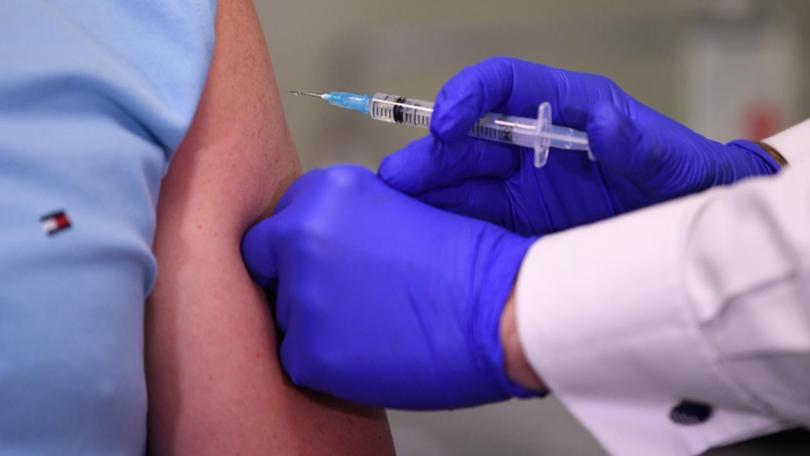Australian meat and vaccine exports at risk if Donald Trump targets GST with ‘reciprocal’ tariffs

Meat and pharmaceutical exporters will be hit hardest if Donald Trump follows through with threats to levy “reciprocal” tariffs on countries that charge taxes on American products, putting Australia and its GST at risk of retribution.
The US president said his new tariffs, flagged shortly after signing off on 25 per cent tariffs on steel and aluminium, would level the playing field for American companies, who were being targeted by “unfair and unbalanced” practices by trading partners.
His administration would impose an equivalent reciprocal tariff on “unfair, discriminatory, or extraterritorial taxes imposed by our trading partners ... including a value-added tax”, a memorandum released by the White House stated.
Sign up to The Nightly's newsletters.
Get the first look at the digital newspaper, curated daily stories and breaking headlines delivered to your inbox.
By continuing you agree to our Terms and Privacy Policy.A value-added tax is a tax levied on consumption — meaning it’s paid on all goods and services produced in and imported into a country.
Australia’s 10 per cent goods and services tax is encompassed by that definition.
As AMP chief economist Shane Oliver points out, the GST is not protectionist, as Mr Trump claims, because it taxes both Australian and imported goods.
But that may not deter the US president, who has given his tariff review a broad scope.
If a reciprocal 10 per cent tariff on Australian exports is enacted, the impact for domestic producers could be more significant than the steel and aluminium tariffs.
Steel and aluminium exports to the US accounted for less than $A900 million in 2024, compared to almost $24 billion in total exports.
Meat exports alone were worth more than $6 billion. Pharmaceutical products, including vaccines produced by ASX blue chip CSL, made up $2.1 billion.
A broader tariff, even a smaller one, could have a larger impact on Australia’s economy and jobs, said Market Economics managing director Stephen Koukoulas.
“If you’re seeing our export sector getting compromised by these tariffs and you lower your GDP forecast by say a quarter of a percentage point, you would actually have a material effect on 10,000 jobs and a loss of national income of several billion dollars,” he told AAP.
“That’s sort of what we’re talking about.”
But Dr Oliver said the direct impact was not the biggest threat to Australia’s economy from Mr Trump’s tariffs.
“Rather, the main risk to Australia will come indirectly if Trump’s trade war leads to a big hit to global trade and growth generally, leading to less demand for our exports,” he said.
Prime Minister Anthony Albanese played down fears of Australia being targeted by reciprocal tariffs, pointing out that Australia does not have any tariffs levied on US imports and the two nations have had a free-trade agreement since 2005.
